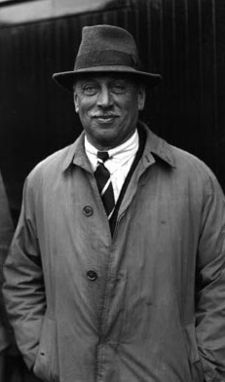Major Douglas
| C. H. Douglas | |
|---|---|

C. H. Douglas in Edmonton, Alberta, Canada, 1934
|
|
| Born |
20 January 1879 Edgeley or Manchester, England, United Kingdom |
| Died | 29 September 1952 (aged 73) Fearnan, Scotland, United Kingdom |
| Nationality | British |
| Institution | Institution of Mechanical Engineers, Institution of Electrical Engineers |
| Field | Civil engineering, Economics, Political science, History, Accounting, Physics |
| School or tradition |
Social Credit |
| Alma mater | Pembroke College, Cambridge |
| Contributions | Cultural heritage as factor of production, Economic sabotage, Unearned increment of association, Money as means of distribution of production, A + B theorem, National dividend, Practical Christianity |
| Signature | |
 |
|
Major Clifford Hugh "C. H." Douglas MIMechE, MIEE (20 January 1879 – 29 September 1952), was a British engineer and pioneer of the Social Credit economic reform movement.
C.H. Douglas was born in either Edgeley or Manchester, the son of Hugh Douglas and his wife Louisa Hordern Douglas. Few details are known about his early life and training; he probably served an engineering apprenticeship before beginning an engineering career that brought him to locations throughout the British Empire in the employ of electric companies, railways and other institutions. He taught at . After a period in industry he went to Cambridge University at the age of 31 but stayed only four terms and left without graduating. He worked for the Westinghouse Electric Corporation of America and claimed to have been the Reconstruction Engineer for the British Westinghouse Company in India (the company has no record of him ever working there), deputy Chief Engineer of the Buenos Aires and Pacific Railway Company, Railway Engineer of the London Post Office (Tube) Railway and Assistant Superintendent of the Royal Aircraft Factory Farnborough during World War I, with a temporary commission as captain in the Royal Flying Corps.
It was while he was reorganising the work of the Royal Aircraft Establishment during World War I that Douglas noticed that the weekly total costs of goods produced was greater than the sums paid to workers for wages, salaries and dividends. This seemed to contradict the theory of classic Ricardian economics, that all costs are distributed simultaneously as purchasing power.
...
Wikipedia
